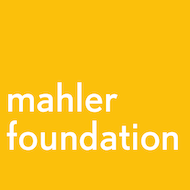Wo die schönen Trompetten blasen is another rather sad, but achingly beautiful song. This song combines elements of the military and the pastoral. The trumpet and horn calls are soft, however, and we are dealing with a meeting of two lovers before the man goes off to war. The horn call music contrasts with the warm dialogue of the lovers in triple time. There is a sort of musical catharsis as the young man describes his house where the bright trumpets play, but this is immediately dispelled by the mention of the green grass, implying that his future home is the grave.
Wo die schonen Trompeten blasen
Wer ist denn draußen und wer klopfet an,
der mich so leise wecken kann?
Das ist der Herzallerliebste dein,
steh’ auf und laß mich zu dir ein!
Was soll ich hier nun länger steh’n?
Ich seh’ die Morgenröt aufgeh’n,
die Morgenröt, zwei helle Stern’,
Bei meinem Schatz da wär ich gern!
bei meiner Herzallerliebsten!
Das Mädchen stand auf und ließ ihn ein,
sie heißt ihn auch wilkommen sein.
Willkommen, lieber Knabe mein!
So lang hast du gestanden!
Sie reicht’ ihm auch die schneeweiße Hand.
Von ferne sang die Nachtigall,
das Mädchen fing zu weinen an.
Ach weine nicht, du Liebste mein!
Auf’s Jahr sollst du mein Eigen sein.
Mein Eigen sollst du werden gewiß,
wie’s keine sonst auf Erden ist!
O Lieb auf grüner Erden.
Ich zieh’ in Krieg auf grüner Heid’:
die grüne Heide, die ist so weit!
Allwo dort die schönen Trompeten blasen,
da ist mein Haus, von grünem Rasen!
Listening Guide
